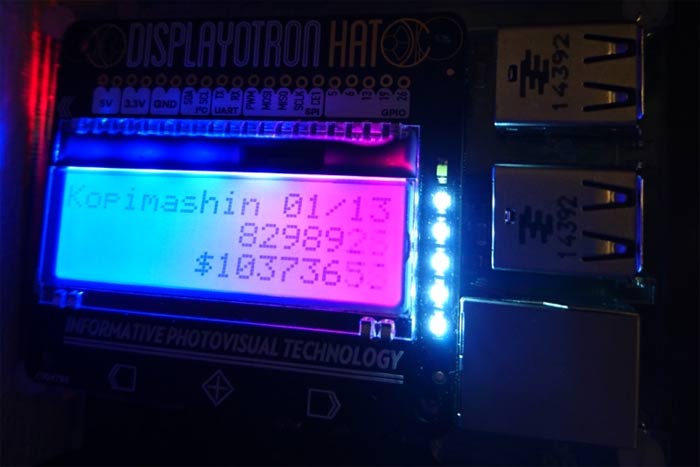Pirate Bay Co-Founder Peter Sunde has created a new device which might well infuriate music industry moguls. The Kopimashin is an 'art project' which is designed to automatically generate a $10,000,000 daily loss for the music industry based on the industry's own value of a copy. All the device does is make 100 copies of the Gnarls Barkley track 'Crazy' every second, which tallies up to over 8 million copies a day of the $1.25 music track.

Peter Sunde was in prison last year due to his involvement with the Pirate Bay. However he hasn't lost his core values which make him frustrated at the value the entertainment industry puts on copies. In fact those values are a direct burden upon his life, as he still owes various film and music companies millions in damages, reports TorrentFreak. Despite the recent memory of prison, Sunde has created this controversial art project racking up millions in losses for the music industry for every day that it is switched on. Incongruously Sunde believes that in the real connected world piracy positively affects digital goods sales.
"I want to show the absurdity on the process of putting a value to a copy. The machine is made to be very blunt and open about the fact that it’s not a danger to any industry at all," Sunde told TorrentFreak. "But following their rhetoric and mindset it will bankrupt them. I want to show with a physical example – that also is really beautiful in its own way – that putting a price to a copy is futile."
The Kopimashin is made up of a Raspberry Pi with a three line LCD display, running some custom Python code. As mentioned in the intro, it copies a $1.25 music track 100 times a second. However the copied track is sent to /dev/null so isn't permanently stored. The lines of the Kopimashin LCD report the device serial number, the number of copies made so far and the supposed dollar value in losses for the record labels.
KH000//Kopimashin
Sunde is making 13 Kopimashin devices to distribute to various exhibitions and galleries. He also recently contacted the Guinness Book of Records, who are reviewing his application for inclusion in the book.













